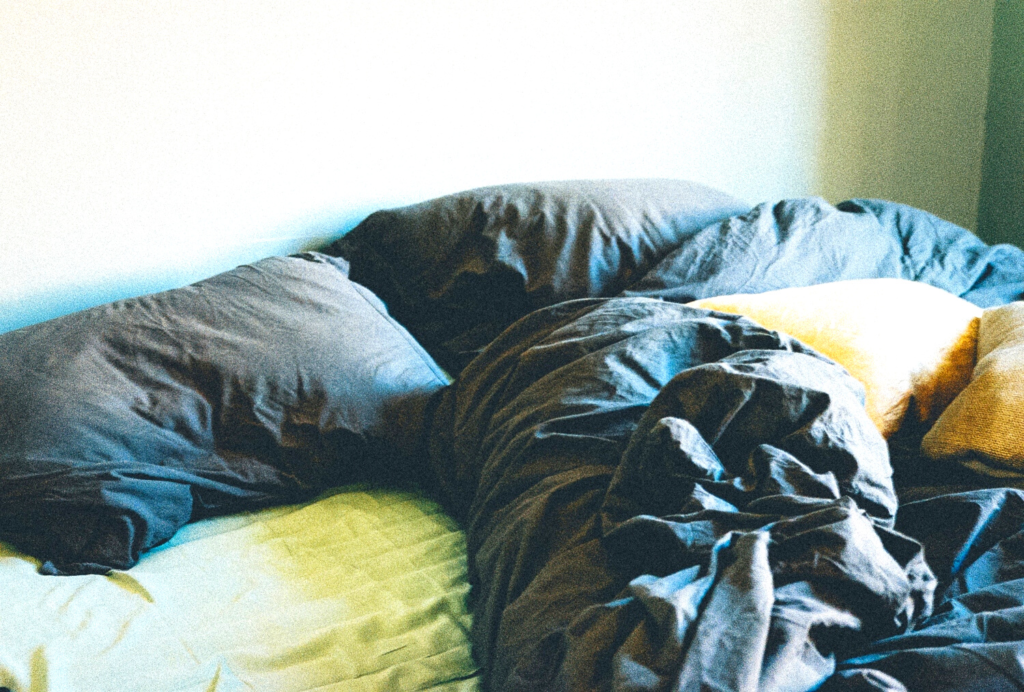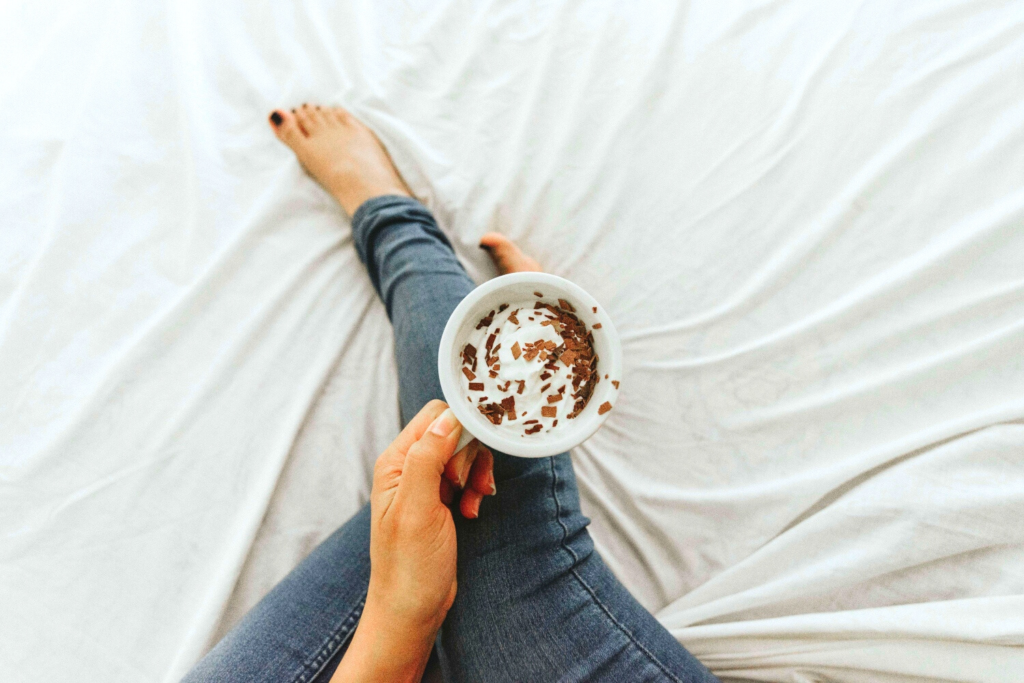How to Become a Pro at Sleeping for Night-Shift
Just as you might expect, sleeping on night shift can be pretty tricky at first. You essentially have to fight against your body’s natural rhythm of staying awake during the daytime and sleeping at night.
But here’s the good news: it is completely possible. And you can do this. Even if it takes a little more effort than it would for the next nurse.
These tips cooperate with all five senses to put yourself into sleep mode so you can face your next (or first) night-shift being the best, well-rested nurse you can be.
Make it dark
When you’re trying to sleep in the daytime, you’re fighting against your body’s normal circadian rhythm. Your body like to be awake during the daytime and asleep during the nighttime. So, the best way to get your body to get with the program of your new work schedule is to make your room as dark as possible. There are a few ways you can do this:
Black out curtains
Black-out curtains will block out a ton of sunlight from your bedroom and will keep the room nice and dark so you can sleep. But they can be a little expensive if you have more than one window or really large windows. If you can’t afford blackout curtains right away, eye masks are a great back up option.
Eye masks
Not all eye masks are created equally. Be sure to grab blackout eye masks that contour to your face to block out the most amount of light possible. You don’t want beams of light to shine in around the bridge of your nose and mess up your sleep. I also like the eye masks that give a little more space between your eyelids and the masks. They’re much more comfortable because they don’t press against your eyelids or smash down your eyelashes.
No screens!
Probably seems pretty obvious but try to avoid watching a bunch of TV or playing on your phone right before bed. You’re already facing an uphill battle to force yourself to sleep when it thinks it should be awake. Of course, the unavoidable drive home in the daytime will already have your body under the impression it’s time to start the day over again, but you can always control your screen time. You can also use blue light-blocking glasses to help decrease difficulty falling asleep after screen time.
Set the (sleep) mood
Cold outside, warm in bed
Your sleep environment preferences may vary, but overall, you’re likely to have an easier time falling asleep when your room is on the colder side and your cuddled up under a warm blanket. You can also try using a weighted blanket. I haven’t tried them personally, but they seem to get raving reviews on how well they work for helping people fall (and stay) asleep.
White noise
The world is run by dayshift. We just have to accept it. You’re trying to sleep while people are mowing lawns, kids are playing outside screaming their heads off, and road construction is happening. No one feels sorry for us nocturnal workers. White noise can help drown out some of that noise. You can use YouTube, an app on your phone, or even a CD if you’re feeling old school. Blocking out some of that noise can really help you fall asleep after a long shift.
Sleep meditations, Calm App/Headspace
White noise not really your jam? Sleep meditations can be really helpful to unwind after a rough shift and fall asleep without replaying the whole shift in your mind before bed. There are a ton of sleep meditations on YouTube, but there are also some really cool paid apps such as Calm or Headspace. I personally use Calm. They have a bunch of sleep stories (bedtime stories for adults, essentially) which are way more effective than I thought they would be. Don’t knock it ‘til you try it.
Lavender spray
I love, love, love lavender. It has been proven to lower stress and anxiety to improve calm and relaxation—the perfect recipe for a good night’s (or day’s) sleep. There are a few ways you can use lavender for bedtime:
Apply directly to skin (topical safe only or with carrier oils) under your nose
Use lavender scented body lotion before bed
Add lavender oil to a diffuser in your bedroom
Use a lavender fabric spray—I use “This Works”
Ear plugs
While not my favorite option, ear plugs can totally cut out the noise keeping you awake. The only downside is that ear plugs make it harder for some people to hear their alarms. A workaround for the “hearing the alarm” thing is you can sleep wearing your Fitbit or Apple Watch and they will vibrate when your phone alarm goes off. I would definitely test it out on a non-work night before relying on it to wake you up before a shift—just to be on the safe side.
What not to eat/drink
No caffeine after midnight
It can be difficult enough trying to fall asleep after a hectic night shift without adding a jolt of caffeine to fight against. Try not to drink caffeine after around midnight or so during your shift so you don’t find yourself unable to fall asleep when you get home.
Just-enough “dinner-time” meal size
Falling asleep on an empty stomach can be a real challenge. A small meal or snack a few hours before bed can keep your stomach from growling while you’re trying to fall sleep.
Stick to the routine
While you’re getting used to this whole night shift deal, it makes it a heck of a lot easier to adjust if you stick to a schedule or routine. Some of my coworkers would take a long nap and then get up at 2:00pm to cook and clean the house. Always try to think about it in these terms:
If you worked day shift, would you get up at 2:00am to cook and clean? Probably not.
Just because you work night shift doesn’t mean that the number of hours in a day changes. Be kind to yourself while you make this transition. Also, a routine will get signal to your body that it’s time to start winding down for the day and you’ll fall asleep that much easier every time.
Supplements
This section was saved for last for a reason.
If you can avoid taking supplements or sleep aids to fall asleep, that’s always a great thing.
Obviously, that is not going to work for everyone for a ton of different reasons. If you’ve given just about everything a try and still can’t seem to fall asleep, there are a few options for you:
Melatonin
A hormone naturally found in the body. Can be purchased in supplement form (pills, gummies, drinks, and more) to help you fall asleep.
Diphenhydramine
Can be bought over the counter. Generic, store-brand diphenhydramine is just as effective as the name-brand stuff.
Other sleep aids
Prescription sleeping pills should be a last resort. But at the literally end of the day, you’ve got to do what you’ve got to do. Maybe sleeping pills will only be a temporary tool while your body adjusts to your new sleep schedule or until you can switch shifts.
Sleeping during the day can be tough, but it is definitely possible. You may just have to work a little harder at it than you needed to when you were on a regular sleep schedule.
Whether you use these tips to hold you over until you can change shifts or use them officially join the nightshift crew for the long haul, get the best sleep possible before your shift so you can be an all-star on your shift.




